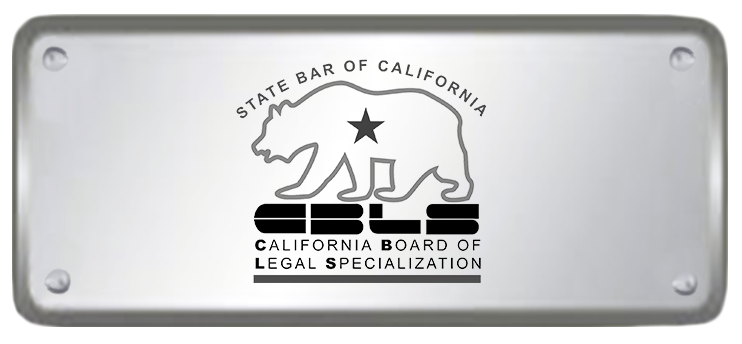MOVE-AWAY CUSTODY CASE IN CALIFORNIA
A relocation or move-away custody case in California can be one of the most contentious issues that arise when one parent seeks to move-away with their child or children. For obvious reasons, this situation can be emotionally charged and legally complex, particularly if the relocation being sought is to a foreign country. Understanding the legal rights, presumptions, and evidentiary burdens placed on the relocating and non-relocating parent is critical. Whether you are requesting or defending a move-away, you need expert advice and legal representation, as the outcome will likely be a life-changer. Many move-away cases result in a trial or an evidentiary hearing, involve a lengthy child custody evaluation, and take months, if not years, to conclude. Therefore, it is imperative that you have an expert family law litigation team on your side.
Legal Framework of Move-Away Custody Cases in California
In California, move-away cases are governed by the Family Code and case law. While the burden of proof can vary depending on many factors, generally, the primary consideration is the best interests of the child and not the parents. When determining whether a proposed move is in a child’s best interest, the court considers several factors, including:
CHILD’S AGE AND NEEDS:
The age and developmental stage of the child are crucial factors in determining the impact of the move on their well-being.
EXISITING RELATIONSHIP WITH EACH PARENT:
The court evaluates the quality and extent of the child’s relationship with both parents and the potential impact of the move on these relationships.
STABILITY AND CONTINUNITY:
The court considers the child’s current environment, including their school, friends, extended family, access to required medical attention, and community ties, and assesses the impact of the move using these factors.
REASON FOR THE MOVE:
The parent proposing the move must have a legitimate reason, which could include employment opportunities, educational prospects, or family support. A bad faith request to relocate that is intended only to interfere with the other parent’s relationship with the child would provide the court with grounds to deny the request.
MODIFICATION OF CUSTODY AND VISITATION:
A proposed move will likely require modifying existing custody and visitation arrangements, and the court will evaluate whether the move will facilitate or impede the child’s ongoing relationship with the noncustodial parent.
Why an experienced attorney is essential in a move-away custody case
At Antonyan Miranda, we have experienced family law attorneys who can provide valuable legal guidance, representation, and advocacy to protect your rights and interests, including:
LEGAL EXPERTISE:
We have a deep understanding of the relevant laws, regulations, and precedents in California. We can explain the legal framework to you, ensuring that you are aware of your rights and obligations throughout the process.
STRATEGIC PLANNING:
We will work closely with you to develop a strategic plan tailored to your specific situation, as the facts of the case oftentimes favor one parent’s case over the other parent’s case. This could be the result of the existing custodial timeshare, an older child’s preferences, or one parent’s inability to parent on a full-time basis due to employment commitments. Therefore, it is critical to analyze and understand what your move-away case might cost, how long it might take to resolve, and what the possible outcome may be. We will assess the strengths and weaknesses of your case, identify key issues, and help you understand the potential outcomes. This strategic approach ensures that your arguments and evidence align with the best interests of your child.
GATHERING EVIDENCE:
Our attorneys can assist in gathering relevant evidence to support your case. This may include employment offers, school enrollment information, financial records, expert opinions, or other documentation that demonstrates the impact of the proposed move on your child and your relationship with them.
LEGAL ARGUMENTS:
Our attorneys will construct compelling legal arguments based on relevant case law and precedents. We will articulate why the proposed move is or is not in the child’s best interest. Our attorneys will also address any potential counterarguments raised by the other parent’s attorney.
MODIFICATION OF CUSTODY AND VISITATION:
A proposed move will likely require modifying existing custody and visitation arrangements, and the court will evaluate whether the move will facilitate or impede the child’s ongoing relationship with the noncustodial parent.
LEGAL ARGUMENTS:
Our attorneys will construct compelling legal arguments based on relevant case law and precedents. We will articulate why the proposed move is or is not in the child’s best interest. Our attorneys will also address any potential counterarguments raised by the other parent’s attorney.
NEGOTIATION AND MEDIATION:
In some cases, negotiations and mediation can be effective in reaching a mutually agreeable solution without going to court. Our attorneys can represent your interests during these processes, helping you articulate your position, propose alternative solutions, and negotiate favorable terms that protect your relationship with your child.
COURT REPRESENATAION:
If the move-away case proceeds to court, our attorneys will provide strong representation on your behalf. We will present your arguments, cross-examine witnesses, and challenge any evidence or claims made by the other party. We will also be prepared to counter any legal or factual assertions and make a compelling case for why the proposed move should not be approved or should be modified to protect your rights as a parent.
CHILD CUSTODY MODIFICATIONS:
If the proposed move is approved, our attorneys can help you navigate the process of modifying the custody and visitation arrangements to ensure that you maintain a meaningful relationship with your child despite the geographical distance. We will work to negotiate a modified parenting plan that accommodates the new circumstances and protects your rights as a parent.
APPEALS AND POST-JUDGEMENT ACTIONS:
If you are dissatisfied with the court’s decision in the move-away case, our attorneys can advise you on the possibility of filing an appeal or pursuing post-judgment actions to seek a modification or reversal of the court’s ruling. In the case of an interstate or international move-away, there is an automatic stay of 30 days from the entry of judgment that is imposed by the operation of law, providing an opportunity for the filing of an appeal.
The family law attorneys of Antonyan Miranda can help you navigate the legal process to protect your rights as a parent and the best interests of your child in a move-away custody case in California. Call us at 619-696-1100 to speak with one of our Concierge attorneys, or visit us at www.expertdivorcelaw.com for more information.
FOLLOW US!
MOVE-AWAY CUSTODY CASE IN CALIFORNIA
A relocation or move-away custody case in California can be one of the most contentious issues that arise when one parent seeks to move-away with their child or children. For obvious reasons, this situation can be emotionally charged and legally complex, particularly if the relocation being sought is to a foreign country. Understanding the legal rights, presumptions, and evidentiary burdens placed on the relocating and non-relocating parent is critical. Whether you are requesting or defending a move-away, you need expert advice and legal representation, as the outcome will likely be a life-changer. Many move-away cases result in a trial or an evidentiary hearing, involve a lengthy child custody evaluation, and take months, if not years, to conclude. Therefore, it is imperative that you have an expert family law litigation team on your side.
Legal Framework of Move-Away Custody Cases in California
In California, move-away cases are governed by the Family Code and case law. While the burden of proof can vary depending on many factors, generally, the primary consideration is the best interests of the child and not the parents. When determining whether a proposed move is in a child’s best interest, the court considers several factors, including:
CHILD’S AGE AND NEEDS:
The age and developmental stage of the child are crucial factors in determining the impact of the move on their well-being.
EXISTING RELATIONSHIP WITH EACH PARENT:
The court evaluates the quality and extent of the child’s relationship with both parents and the potential impact of the move on these relationships.
STABILITY AND CONTINUITY:
The court considers the child’s current environment, including their school, friends, extended family, access to required medical attention, and community ties, and assesses the impact of the move using these factors.
REASON FOR THE MOVE:
The parent proposing the move must have a legitimate reason, which could include employment opportunities, educational prospects, or family support. A bad faith request to relocate that is intended only to interfere with the other parent’s relationship with the child would provide the court with grounds to deny the request.
MODIFICATION OF CUSTODY AND VISITATION:
A proposed move will likely require modifying existing custody and visitation arrangements, and the court will evaluate whether the move will facilitate or impede the child’s ongoing relationship with the noncustodial parent.
Why an experienced attorney is essential in a move-away custody case
At Antonyan Miranda, we have experienced family law attorneys who can provide valuable legal guidance, representation, and advocacy to protect your rights and interests, including:
LEGAL EXPERTISE:
We have a deep understanding of the relevant laws, regulations, and precedents in California. We can explain the legal framework to you, ensuring that you are aware of your rights and obligations throughout the process.
STRATEGIC PLANNING:
We will work closely with you to develop a strategic plan tailored to your specific situation, as the facts of the case oftentimes favor one parent’s case over the other parent’s case. This could be the result of the existing custodial timeshare, an older child’s preferences, or one parent’s inability to parent on a full-time basis due to employment commitments. Therefore, it is critical to analyze and understand what your move-away case might cost, how long it might take to resolve, and what the possible outcome may be. We will assess the strengths and weaknesses of your case, identify key issues, and help you understand the potential outcomes. This strategic approach ensures that your arguments and evidence align with the best interests of your child.
GATHERING EVIDENCE:
Our attorneys can assist in gathering relevant evidence to support your case. This may include employment offers, school enrollment information, financial records, expert opinions, or other documentation that demonstrates the impact of the proposed move on your child and your relationship with them.
LEGAL ARGUMENTS:
Our attorneys will construct compelling legal arguments based on relevant case law and precedents. We will articulate why the proposed move is or is not in the child’s best interest. Our attorneys will also address any potential counterarguments raised by the other parent’s attorney.
MODIFICATION OF CUSTODY AND VISITATION:
A proposed move will likely require modifying existing custody and visitation arrangements, and the court will evaluate whether the move will facilitate or impede the child’s ongoing relationship with the noncustodial parent.
LEGAL ARGUMENTS:
Our attorneys will construct compelling legal arguments based on relevant case law and precedents. We will articulate why the proposed move is or is not in the child’s best interest. Our attorneys will also address any potential counterarguments raised by the other parent’s attorney.
NEGOTIATION AND MEDIATION:
In some cases, negotiations and mediation can be effective in reaching a mutually agreeable solution without going to court. Our attorneys can represent your interests during these processes, helping you articulate your position, propose alternative solutions, and negotiate favorable terms that protect your relationship with your child.
COURT REPRESENTATION:
If the move-away case proceeds to court, our attorneys will provide strong representation on your behalf. We will present your arguments, cross-examine witnesses, and challenge any evidence or claims made by the other party. We will also be prepared to counter any legal or factual assertions and make a compelling case for why the proposed move should not be approved or should be modified to protect your rights as a parent.
CHILD CUSTODY MODIFICATIONS:
If the proposed move is approved, our attorneys can help you navigate the process of modifying the custody and visitation arrangements to ensure that you maintain a meaningful relationship with your child despite the geographical distance. We will work to negotiate a modified parenting plan that accommodates the new circumstances and protects your rights as a parent.
APPEALS AND POST-JUDGMENT ACTIONS:
If you are dissatisfied with the court’s decision in the move-away case, our attorneys can advise you on the possibility of filing an appeal or pursuing post-judgment actions to seek a modification or reversal of the court’s ruling. In the case of an interstate or international move-away, there is an automatic stay of 30 days from the entry of judgment that is imposed by the operation of law, providing an opportunity for the filing of an appeal.
The family law attorneys of Antonyan Miranda can help you navigate the legal process to protect your rights as a parent and the best interests of your child in a move-away custody case in California. Call us at 619-696-1100 to speak with one of our Concierge attorneys, or visit us at www.expertdivorcelaw.com for more information.





















